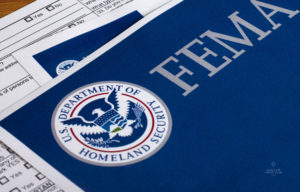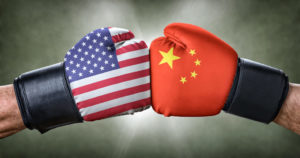News & Insights
The Rules of the Game Change Again: New Restrictions on Trade and Travel with Cuba Take Effect
As has been anticipated by the U.S. export community since earlier this summer, the Treasury Department’s Office of Foreign Assets Control (“OFAC”) and the Commerce Department’s Bureau of Industry and Security (“BIS”) just amended their respective regulations to implement President Trump’s vow to roll back many of the Obama Administration’s efforts to liberalize trade with Cuba. On June 16, 2017, President Trump signed a National Security Presidential Memorandum entitled, “Strengthening the Policy of the United States Toward Cuba,” which promised to restrict tourism and trade with Cuba, as well as financial transactions with Cuban military, intelligence and security agencies. The Final Rules amending the Cuban Assets Control Regulations (“CACR” at 31 C.F.R. Part 515) and the Export Administration Regulations (“EAR” at 15 C.F.R. Part 730 – 774) were published in the Federal Register and went into effect on November 9, 2017. The following summarizes these amendments.
First, the U.S. State Department published the new “List of Restricted Entities and Subentities Associated with Cuba” (i.e., the “Cuba Restricted List”) identifying Cuban Ministries, holding companies, hotels, tourist agencies, marinas, entities directly serving the defense and security sectors, as well as entities owned and controlled by Cimex, GAESA, GAVIOTA and HABAGUANEX. The CACR now prohibit U.S. persons from engaging in direct financial transactions with the parties identified on this list, and the BIS amended its licensing policy under the EAR to deny applications for the export or reexport of items involving parties identified on the Cuba Restricted List.
OFAC added new requirements to the CACR for categories of educational travel to Cuba as well as the travel authorization entitled “Support for the Cuban People,” removed the previous authorization for individual “people-to-people” educational travel, and amended the definition of “Prohibited officials of the Government of Cuba.”
The BIS also amended the definition of “Prohibited officials of the Government of Cuba” in the EAR, as well as License Exception Support for the Cuban People (“SCP” in Section 740.21 of the EAR). License Exception SCP is now a single provision authorizing exports and reexports to Cuba of EAR99 items or items controlled only for anti-terrorism reasons for use by the Cuban private sector for private sector economic activities; but, such items may not be used to primarily generate revenue for the state or used to contribute to the operation of the state, including through the construction or renovation of state-owned buildings. (NOTE: EAR99 medicines, medical devices and agricultural commodities must still be exported under the Trade Sanctions Reform Act of License Exception AGR.)
In view of these new changes, U.S. companies that were previously doing business in or with Cuba under the Obama Administration’s trade and diplomatic liberalization efforts are urged to review their current activities to ensure that they comply with the CACR and EAR amendments, and that they do not involve parties identified on the new Cuba Restricted List. If you have any questions pertaining to these changes, U.S. embargoes and economic sanctions, or other international trade issues, please contact Melissa Proctor at Miller Proctor Law PLLC (melissa@millerproctorlaw.com).
News & Insights

Midsummer Update on U.S. Trade and Tariff Actions under Sections 232 and 301
As we near the mid-point of the summer, we thought it would be wise to provide an update on the various U.S. trade and tariff actions under Sections 232 and 301 in case either the Arizona heat or the humidity

FEMA Implements Temporary Rule Restricting Exports of Certain Personal Protective Equipment Used to Treat the COVID-19 Virus
On April 10, 2020, FEMA issued a temporary rule that prohibits exports of certain personal protective equipment (“PPE”) used to treat the COVID-19 virus from the United States without prior FEMA approval. The temporary rule took immediate effect and will


